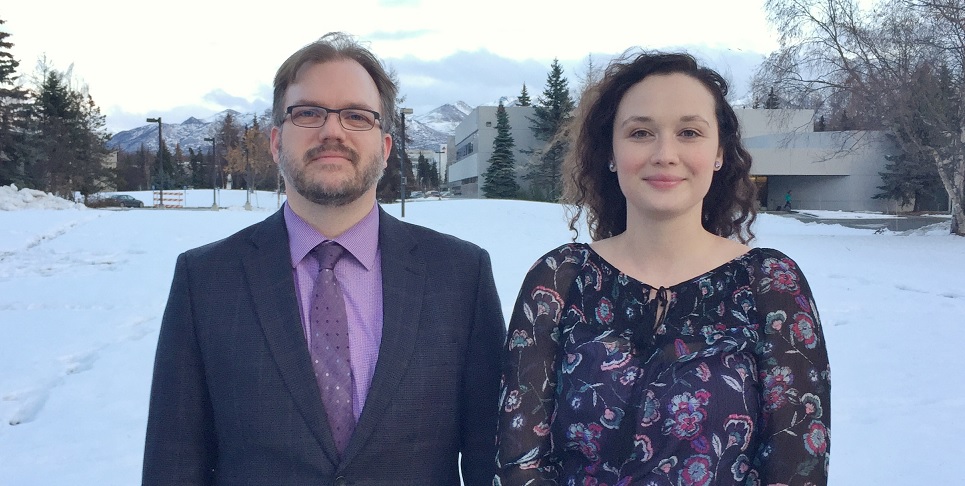Justice Center Faculty Awarded Grants for Alaska Research
by Henry Randolph |

When it comes to crime, we all want the same thing—less of it. Alaska’s justice system is a complex fabric of agencies and programs that seek to respond to, reduce and prevent crime. Some we might take for granted, like law enforcement agencies, while others might be less familiar, such as programs that help people avoid returning to prison after they’ve been released. But in a world of limited resources, how do we know if these individual threads in our justice system are working effectively?
One of the best ways to answer that question is through evaluative research: a systematic and objective look at a program’s operations, its goals, and its real-world outcomes. Program evaluation helps organizations and agencies make their programs more effective, maximize their resources, and improve their contribution to a safer, healthier community.
Faculty members at the UAA Justice Center are experts in program evaluation and research, and they partner with agencies and organizations across Alaska to help them assess their work. Three professors at the Justice Center have recently been awarded new grant funding for evaluative research:
Assistant Professor Rita Augustyn has received $100,000 from the Alaska Department of Corrections (ADOC) to conduct both process and outcome evaluations of the department’s new re-entry probation officer initiative. ADOC’s goal is to help re-entrants successfully transition back into their communities by offering individual case management and programming, as well as family, community and peer support services. The objective of re-entry programs like this is to decrease the chances that people will be sent back to prison after they’ve been released—that is, to reduce recidivism.
Assistant Professor Yeungjeom Lee has received $80,000 from the Alaska Native Justice Center (ANJC) to conduct an evaluation of the center’s re-entry program. This program works with individuals both before and after they’re released from incarceration, providing them with the resources and skills they need to navigate the challenges that re-entrants often face. This includes helping them search for employment and housing, identifying mentors and peers who can provide social support, and connecting them with alcohol and drug rehabilitation programs.
Associate Professor Troy Payne has received $61,500 from the Alaska State Troopers (AST) to conduct a staffing study of the agency’s Western Alaska operating region—a unique part of the state where troopers are stationed in hub communities and travel to remote rural areas as needed, which can sometimes take several days. The study will examine the demand for troopers in this region: how often troopers are dispatched, how many are needed to respond to calls, and other factors that affect how AST allocates its staff. Ultimately, Payne’s work will help the agency determine how to structure its workforce most effectively to meet public safety needs. This study follows a similar one that Payne conducted in 2018, which focused on one of AST’s south-central operating regions.
“I’m proud of the work being done by Dr. Augustyn, Dr. Lee and Dr. Payne,” said Brad Myrstol, associate professor and director of the Justice Center. “The Justice Center is committed to partnering with justice practitioners across the state to conduct research that is rigorous, meaningful, and above all, impactful. Alaska’s best hope for reducing crime is to invest in programs and initiatives that work. Our goal is to contribute to the state’s crime and recidivism reduction efforts by carrying out research that helps justice practitioners and policymakers understand what works and why. Each of these projects will do just that.”
Student Stories
Research
Events and Highlights
Alumni
In the News
Awards
Community
COVID-19
Diversity, Equity, and Inclusion









